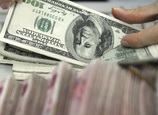
Although Mitt Romney was defeated in the recent US presidential election, his campaign trail promise to get tough on trade relations with China is another reminder of the more aggressive trade protection stances Chinese companies are coming up against overseas.
Since the start of the global financial crisis, China has frequently come under fire from trade officials and politicians abroad. In fact, since 2008, more than 40 percent of trade protection measures have been aimed against China, according to data from the Center for Economic Policy Research, an economic research network based in England. The Ministry of Commerce has also noted a marked increase in import bans on Chinese-made goods in recent years, especially products from emerging high-tech industries.
It's not surprising that governments worldwide are putting up trade barriers at a time when the global economy is losing momentum. Anemic economic activity has led to an increase in unemployment rates in several countries, and governments are under pressure to introduce measures that will create jobs at home and discourage trade with other nations.
Unfortunately for countries like China, which depend on exports for their own economic growth, it's often hard to distinguish blatant acts of protectionism from legitimate defenses against unfair trade practices.
But why is China so often running afoul of trade protection policies from overseas governments? The country's quick growth in exports undoubtedly has a great deal to do with the troubles it's having now. Since 1980, China has seen its export output grow by an average annual rate of 13.73 percent, above the global average of 5.71 percent seen over the same period. At the same time, the sheer breadth of Chinese-made goods - ranging from household goods and furniture to shoes and toys - flooding into overseas markets has created the impression that local manufacturers of the same products are being crowded out of their home turf. For overseas lawmakers arguing to reduce imports, China is easy to cast as a boogieman intent on gobbling up local jobs and usurping local growth.
Many Chinese businesses, including several of the country's largest enterprises, have also proven quite ineffective at defending themselves from protectionism abroad. Most local businesses lack a solid understanding of the rules of the World Trade Organization as well as trade laws and regulations in Western countries, making it nearly impossible for them to fight back against unfair treatment.
To cope with the rising tide of antagonism overseas, Chinese companies must become more adept at pursuing legal and administrative channels when they are confronted by trade countermeasures.
Chinese planners should also accelerate the transition of the domestic economy to make local growth less dependent on exports.
The author is an economic commentator. bizopinion@globaltimes.com.cn
















![]()
